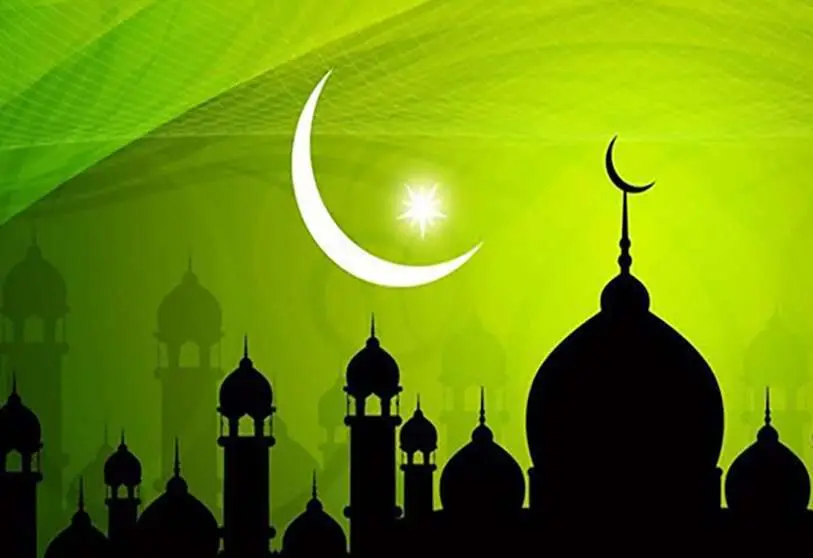The blessed month of Ramadan

Ramadan is a very important holy month for Muslims. During Ramadan, Muslims fast for 30 days. It is the ninth month of the lunar calendar and is the month in which the revelation of the Quran began. From sunrise to sunset, the faithful are to abstain from eating, drinking and smoking among other restrictions.
The word Ramadan comes from an Arabic root meaning "to burn". Therefore, Ramadan refers to two types of fire: spiritual and physical. The spiritual fire heals spiritual ailments by burning away faults under a purifying fire, and the physical fire heals the body of its ailments.
Fasting is not only the prerogative of Islam, but it is also the prerogative of other religions.
"O believers, fasting is prescribed for you, as it was prescribed for those before you, that ye may be righteous. ( Quran 2:187)
Observing Ramadan, the month of fasting, forms the fourth pillar of Islam, along with the declaration of faith, prayer, obligatory charity, and the pilgrimage to Mecca.
During this month, people gather at the mosque and pray together. Due to the pandemic, congregational prayers are restricted. Muslims, during the month of Ramadan, go to the mosque more often than in other months. In addition, they must participate in the Tarawih prayer every night.
Al'lah (God the Father) has commanded fasting and has explained to us that fasting is an excellent thing. While there are spiritual benefits, there are also physical benefits to fasting.
"And fasting is good for you, if ye only knew!" ( Quran 2:187)
The benefits of fasting have been scientifically proven. Fasting is recommended for improving physical fitness and staying healthy. Doctors conclude that continuous fasting is very beneficial and that the body derives many benefits from it.
"Al'lah desires to give you ease and does not desire for you that which is difficult" (2: 186).
Prophet Muhammad (peace and blessings of Al'lah be upon him) said:
"God Almighty says that, if fasting is done for Him, then God Himself becomes the reward of that fasting person." (Bukhari)

Where Al'lah Almighty has made fasting obligatory for ordinary Muslims, yet sick people are forbidden to fast. The same applies to breastfeeding women and menstruating women. It is also forbidden to fast while travelling, and sick people are not allowed to fast. Unfulfilled fasts must be completed afterwards.
Prophet Muhammad (lpbD) once said that "if people knew of the delicacies of Ramadan, my ummah (the Muslim commonwealth) would wish that the whole year were Ramadan". He said: "Verily, Paradise is decorated for Ramadan from the beginning to the end of the year".
Similarly, in another narration, quoted by Hazrat Abu Hurairah (ra), the Holy Prophet (lpbD) said that "whoever observes fasting during the month of Ramadan in a state of faith by self-evaluating, his previous sins will be forgiven".
The Quran began to be revealed during the month of Ramadan. Therefore, the Qur'an and Ramadan are closely related. The Archangel Gabriel used to come in the month of Ramadan to review its reading with the Holy Prophet (pbuh). This is why many Muslims recite the Qur'an twice in Ramadan. Also some Muslims recite the whole Qur'an in the last ten days and some in the last three days.
Fasting teaches us patience and sacrifice. If we have given up the things we eat every day, why can't we give up the things that Al'lah has forbidden?
According to people advanced in spirituality, the mercy of Almighty Al'lah comes this month with a special zeal and the blessings and rewards of Almighty Al'lah are showered upon the believers. To absorb these rewards, one should avoid talking nonsense, generating noise and disorder, not swearing and avoiding quarrelling in these days. In response to all evil, the fasting person's response should be "I am fasting". (Bukhari)
Some Muslims also observe I'tikaf during the last ten days, following the example of the Messenger of Al'lah who also used to observe it.
Also, Muslims offer a lot of charity in the month of Ramadan, because Prophet Muhammad (lpbD) used to offer a lot of charity during this month.
Muslims celebrate the feast of Eid at the end of Ramadan as a reward for fasting. On the day of Eid, good clothes are worn and good food is cooked. A good Muslim should care for people in need, providing them with new clothes and giving them quality food.
A true servant who is eager to seek refuge in Almighty Allah should spend these days in prayers with utmost humility and submission and acknowledging his weaknesses and mistakes.
This will undoubtedly lead to a better world.
Ahmadiyya Muslim Community in Spain









